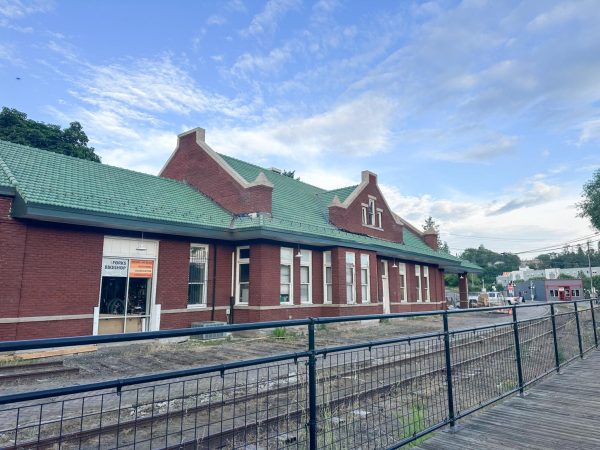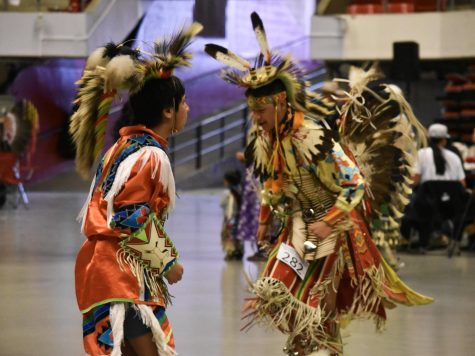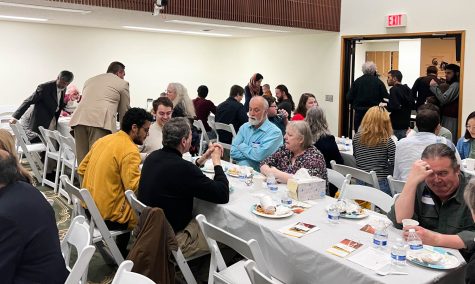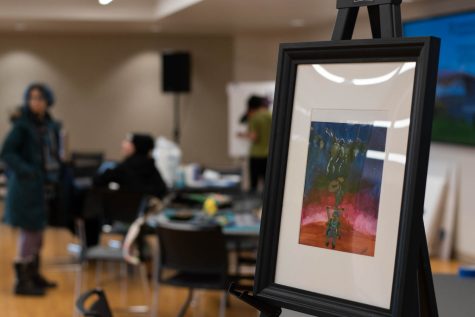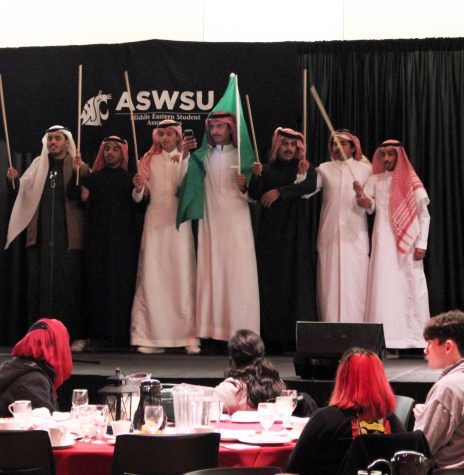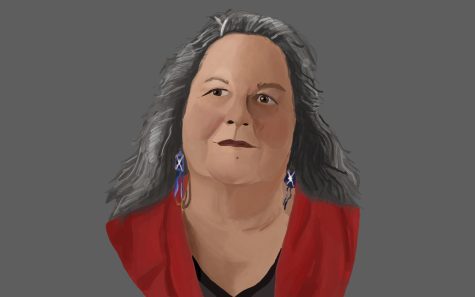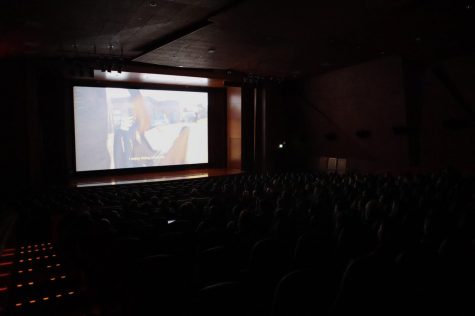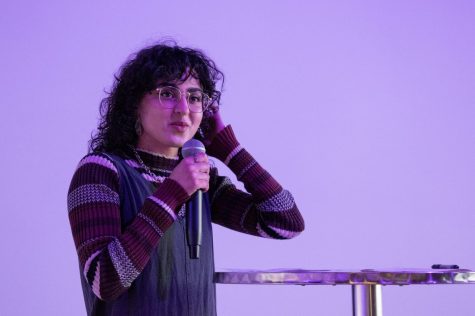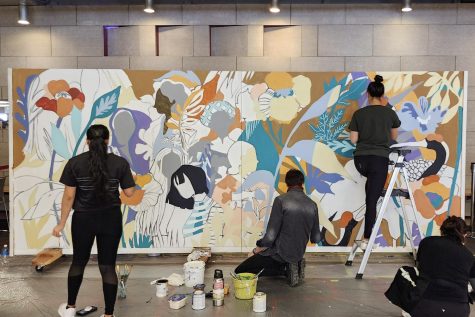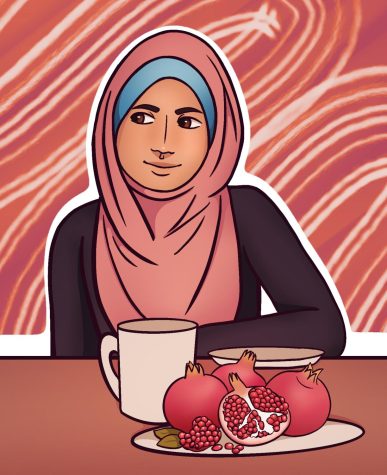Middle Eastern student night brings culture to campus
February 27, 2015
In a quest to offer immersion into a new culture, the Pullman community will have the opportunity to cannonball into the Arabic Peninsula and experience the wonders of the Middle East.
The Middle Eastern Student Association (MESA), located in the basement of the CUB near the International Center, is a multicultural student organization geared toward people from all different backgrounds, cultures and walks of life.
MESA is currently in the process of putting together programs that are open to everyone. The club will host a Middle Eastern night event today with food, dancing, music, henna, Arabic calligraphy and more, said active member Parissa Parvis, a freshman pre-dental student.
Phillip Sinapati, the adviser for MESA, said the event will feature display booths describing the countries of the Middle East represented at WSU. These include Iran, Iraq, the Arabian Peninsula and parts of North Africa.
“They’re information booths … to get the word out,” Sinapati said. “Students will be dressed up in traditional wear from those countries (and) answer any questions.”
In their attempts to remain traditional with the food, MESA worked with university dining services and chef Corey King to create food offered in the region and the ways to prepare it. Some of the menu contents came from recipes from the students and their families. Dishes include chicken tagine, white bean tagine and kabsa.
“What we’re trying to do … (is) give the experience of what it’s like to eat in a family setting,” Sinapati said.
Among these, the event also features a photo booth and a fashion show of different traditional and modern clothing brought in by the students who go to WSU. There are also students offering to write names or statements in Arabic and Persian calligraphy.
The event is MESA’s largest of the year and is meant to be a snapshot of the marvels and beauty of Middle Eastern culture contained in a two-hour timespan, Sinapati said.
“The whole heart behind this event is to give people a glimpse (of the culture) by bringing the Middle East here to Pullman,” Sinapati said.
The Middle Eastern Night is on Friday in the CUB Senior Ballroom. Doors open at 5:30 p.m., and the event is free and open to the public.
Among the other events MESA holds, the club offers free Arabic lessons to the public.
Currently, the weekly, noncredit class has eight students, ranging from undergraduates to older adults who meet for their immersion in the Middle East.
The classes are 12-week language courses for both beginning and intermediate students. Austin Vela, a senior international business major, teaches the beginning class.
Vela said he grew up speaking Spanish as a second language and from there, his curiosity for language grew into a fascination, and he longed to learn other types of languages.
Vela, who is primarily self-taught, learned a portion of Arabic via a friend from Saudi Arabia, who started teaching Vela the language his sophomore year. Through this basic conversation, Vela said he had the urge to learn more and eventually became fluent.
“What intrigues me the most is the beauty about it,” Vela said. “It’s something most don’t recognize in reading or writing.”
In his beginning class, Vela’s aim is to teach students the fundamentals of Arabic, giving them a basic grasp on grammar concepts and getting students to speak with one another. He tries to teach basic greetings and have the students take something away from the course.
One of the reasons MESA wanted to offer a language course is because Arabic is becoming a very important language, but it’s difficult to find Arabic language books, Vela said. By taking this class, students are bettering themselves with understanding a different language, he said.
Although only a few students are in the beginning course, MESA hopes to continue to provide classes.
Parvis said she joined MESA because she found the club interesting and wanted to explore different cultures.
“I’ve met a lot of new people coming in as a freshman,” Parvis. “I learned a lot about different cultures in the Middle East.”
She emphasized that MESA is open to people of all cultures, not just people from Middle Eastern backgrounds.
MESA meets Tuesdays at 5 p.m. for students of all areas, backgrounds and ages. The beginning Arabic class is at 2:30 p.m. on Tuesdays on the second floor of the Smith Center for Undergraduate Education. Intermediate courses meet at 5 p.m. on Fridays in CUE 409.









